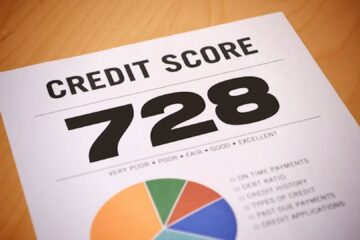5 Tips for Managing Credit Cards Well
Advertising
Managing your credit cards effectively is crucial for maintaining a healthy financial life. Prioritizing paying on time and keeping your credit utilization ratio low can save you money and improve your credit score.
By setting a budget and sticking to it, you ensure that your spending aligns with your financial goals.

Regularly reviewing your credit card statements and credit report can help identify any discrepancies or fraudulent activities early. Developing good spending habits and taking advantage of cash back or rewards programs can also enhance the benefits you get from using your credit card’s.
To dive deeper into how these strategies can help you, continue reading for practical tips that can make managing your credit cards easier and more efficient.
Understanding Credit Card Basics
Credit cards serve as a convenient means of making purchases and managing finances. Different types of credit cards offer various benefits, and understanding their functionality can help you make informed decisions.
Types of Credit Cards
There are various credit card, each designed to meet specific financial needs. Rewards credit cards offer points, miles, or cash back for purchases. These can be beneficial if you frequently use your credit card and pay off the balance monthly. Secured credit cards require a deposit and are ideal for building or rebuilding your credit score.
Student credit cards typically have lower credit limits and are tailored for college students. They often come with educational resources and rewards for good grades. Business credit cards provide tools for managing expenses and come with rewards or cash-back options tailored for business-related purchases. Finally, low-interest and balance transfer credit cards offer lower interest rates and are helpful for consolidating and paying off existing debt.
How Credit Cards Work
A credit card allows you to borrow funds from a bank up to a certain limit to make purchases. Each month, you’ll receive a statement detailing your transactions, the total amount owed, and the minimum payment due. If you pay the full balance by the due date, you avoid interest charges. Carrying a balance results in interest accrual, calculated based on the card’s Annual Percentage Rate (APR).
Credit cards also impact your credit score, which is influenced by factors like your payment history, credit utilization ratio, length of credit history, and types of credit used. Maintaining low usage and making timely payments boost your score. Additionally, most credit cards offer fraud protection, shielding you from unauthorized transactions.
Understanding these fundamentals can help you manage your credit cards effectively and make the most of the available features and benefits.
Effective Credit Card Management Strategies
Effective credit card management requires setting clear financial goals, maintaining healthy credit habits, and controlling credit card debt. Each strategy helps ensure you use credit cards responsibly and avoid falling into financial trouble.
Setting Clear Financial Goals
To manage your CC well, begin by setting clear financial goals. Outline specific, achievable objectives such as paying off a certain amount of debt within a set timeframe or maintaining a low credit utilization ratio.
Use tools like budgeting apps or spreadsheets to track your progress. Consider applying the SMART criteria—Specific, Measurable, Achievable, Relevant, and Time-bound—to set realistic goals that align with your overall financial plans.
Maintaining Healthy Credit Habits
Healthy credit habits are essential for effective credit card management. Always pay your credit card bills on time to avoid late fees and interest charges. Aim to pay more than the minimum payment each month to reduce debt faster.
Regularly review your credit card statements for accuracy. Report any discrepancies immediately. Keeping a low credit utilization ratio, ideally under 30%, can positively impact your credit score. Also, periodically check your credit report for errors and stay informed about your credit standing.
Controlling Credit Card Debt
Controlling credit card debt is crucial to avoid financial pitfalls. Start by creating a budget that outlines your monthly income and expenses. Stick to this budget to prevent overspending. Consider debt consolidation if you have balances on multiple cards; it can simplify payments and potentially lower your interest rates.
Use cash back or rewards programs to your advantage, but don’t let them encourage extra spending. If necessary, use tools like card lock features to temporarily disable your card and prevent unauthorized charges. These steps help you stay in control and reduce overall debt effectively.




